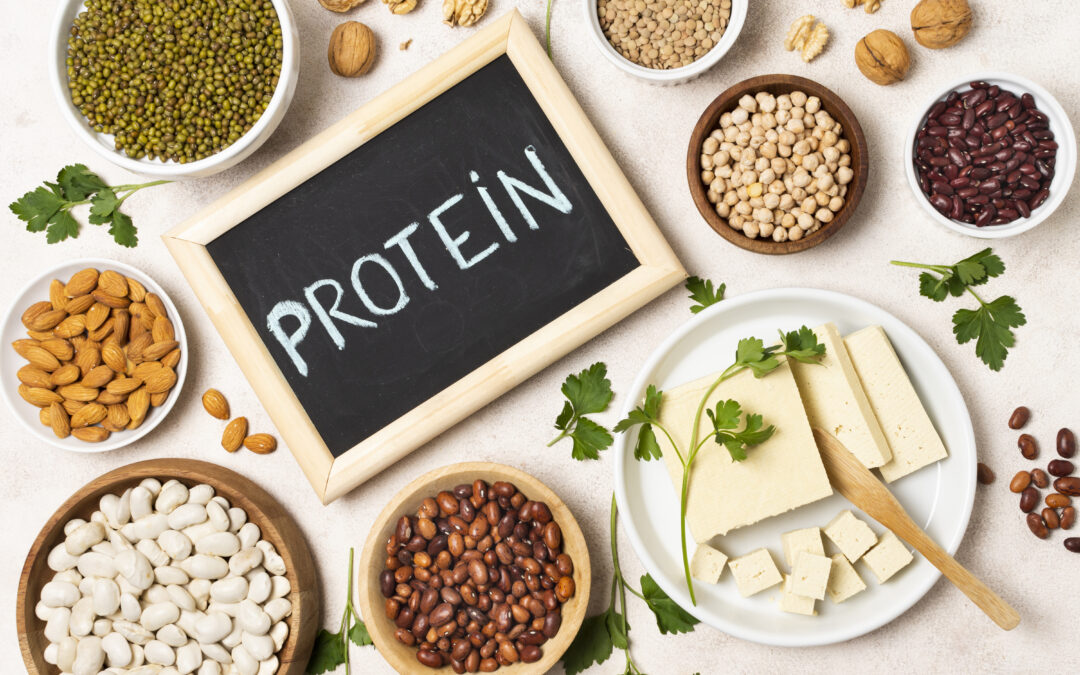Plant-based protein food are becoming more popular as people get aware of their uses in individual wellbeing. Whether you want to lower the amount of meat intake or go for a vegan diet, it is crucial to know the plant-based protein is best. In this blog we will focus on what they are, their importance, and, how you can include them properly into your diet.
What Are Plant-Based Proteins?
Plant-based proteins are sourced from plant products, though not animals. It include food like legumes including beans and lentils, nuts, seeds, grains and some vegetables. Protein from plant sources is usually packed with other nutrients such as fiber, vitamin and minerals which make them a complete product for the body.
Complete vs Incomplete Proteins
Proteins consist of amino acids and our bodies require 20 different kinds to work. Nine of these are essential amino acids which our bodies can’t make so we need to get them from food. Some plant-based proteins are “complete” meaning they have all nine essential amino acids (such as quinoa and soy). However many plant proteins are “incomplete” and need to be paired with other plant foods to create a complete protein profile. For example, eating beans with rice gives you all the essential amino acids.
Advantages of Plant-based Protein Food
- Lower Risk of Chronic Diseases: It is necessary to notice that the diet plays a critical role in the overall health preservation in the long run. It has been indicated that diets with high content of plant-based protein food have lesser dangers of chronic diseases such as heart diseases, diabetes and cancers. This is mostly because most of the products contain a very low level of saturated fats and cholesterol but relatively high measures of antioxidants, fiber and other protective nutrients.
- Weight Management: The other advantage of plant-based proteins food is that they are lower in calories than animal proteins. The fiber in these proteins also reduce hunger making consumption of these proteins a key to managing appetite and ensure that one does not eat much in between meals.
- Digestive Health: Plant-based protein food contain fiber which ensures that the colon is always active promoting proper bowel movement and good bacteria from the gut. Digestive is a vital system that provides the body with an essential nutrient and energy required to carry out a variety of functions.
- Inflammation Reduction: Inflammation is associated with certain diseases and conditions, such as heart diseases and arthritis among them. It is as well important to note that majority of plant-based protein foods contain substances known as phytochemicals, which have anti- inflammatory properties enhancing the health of the body.
Popular sources of plant-based protein Food
- Legumes: There is protein in beans, lentils, pea and other legumes. They are very variable, cost effective, and contain a large percentage of fiber used in vegan diets. Lentils are rich in protein and fiber, easy to prepare and suitable for use in soups, stews, salads. It can be consumed roasted on its own, crushed into hummus, used in salads, or in the preparation of salads.
- Grains: Grains such as quinoa, farro and barley are good sources of protein, more, when they are combined with other plant source of proteins. Quinoa is a grain that is highly nutritional and can be taken by being boiled and being used in salads or can even be taken in the breakfast.
- Nuts and Seeds: Nuts and seeds are packed with protein and essential fatty acids, vitamins and minerals. Almonds are good source of protein and fiber, and making a good snack or can be added as ingredient in oats, yogurt or salad recipes. Chia seeds are protein, omega3 fatty acids, and fiber. It can be blended in a smoothie, added to yogurt or it could be prepared in chia pudding.
- Soy Products: Soy is one of the richest sources of protein which can be produced from plant foods. It is also a very flexible food with items such as tofu, tempeh, edamame. Tofu is a common food item that can be prepared with almost any flavor and cooked in any form of cooking which makes it famous among vegetarian and vegan meals. Tempeh is made from soybeans that have been naturally processed and has a hard, chewy texture, so it works well as a meat substitute in stir-fries and sandwiches.
- Vegetables: In general, vegetables have less protein than legumes or nuts. But there are some vegetables that can be good protein providers, like broccoli, spinach, or Brussels sprouts. These plant-based protein food vegetables might provide required proteins to the body.
Conclusion
Protein from plant sources has a number of advantages for health and for the health of the planet. If you realizes the different sources and ways of including plant-based protein food in the diet, a positive change can be made in terms of health. If you’re trying to incorporate more plant-based protein food to your diet, plant protein is a healthy, environmentally friendly, and tasty option.
Also Check,
https://www.healthyfoodshealthygoods.com/intermittent-fasting/

